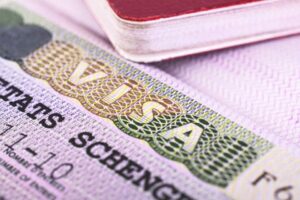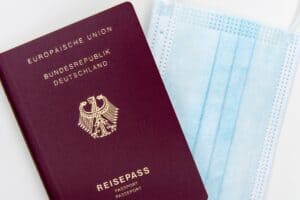Several representation agreements for the Swedish Embassy to Lusaka, Zambia have been temporarily suspended due to efforts to contain the spread of COVID-19. Countries that have suspended their representation agreements with the respective Swedish Embassy include: Norway, France, Latvia, Denmark, Estonia, Finland, The Netherlands, Poland, Portugal, Switzerland and Belgium.
An announcement by the Swedish Embassy to Lusaka, Zambia reads that the above countries have “suspended the representation agreements and the Embassy can therefore no longer process application for Schengen Visas for these countries.”
The report went on to say that applicants who have been approved for visas to visit Norway will no longer be able to enter, regardless of the type or length of visa. It also said that it is not yet known by the embassy whether applicants awarded visas to France, Latvia, Denmark, Estonia, Finland, The Netherlands, Poland, Portugal, Switzerland, or Belgium will be allowed to enter or not.
A representation agreement is signed by two countries to allow one of them to represent the other in the respective country’s foreign embassy for visa application, approval, and issuance matters. In this case, the above countries allowed Sweden to represent them for visa matters in Lusaka, Zambia.
On 17 March 2020, The Schengen Area as a whole approved a plan proposed by the European Commission to temporarily suspend all non-essential travel across all external Schengen borders for at least 30 days.
“On the four priorities identified, the first ‘limiting the spread of the virus’, we endorsed the guidelines proposed by the Commission on border management. We need to ensure passage of medicines, food and goods and our citizens must be able to travel to their home countries. Adequate solutions for cross-border workers will be found. To limit the spread of the virus globally, we agreed to reinforce our external borders by applying a coordinated temporary restriction of non-essential travel to the EU for a period of 30 days, based on the approach proposed by the Commission,” said President of the European Council Charles Michel.
The travel ban will include all non-EU nationals except long-term residents, family members of EU nationals and diplomats, and essential travel for cross-border and healthcare workers, and goods-transportation service workers.
Individual countries in the Schengen Area like Sweden are also taking measures to temporarily halt travel across their borders to contain the spread of COVID-19.
“On 18 March, the Government decided to temporarily stop non-essential travel to Sweden to mitigate the effects of the COVID-19 outbreak and reduce the spread of the virus,” read a report from the Swedish Ministry of Foreign affairs. Although the border closings across the Schengen Area are temporary, it is still unclear exactly how long borders will be closed and travel restricted.















